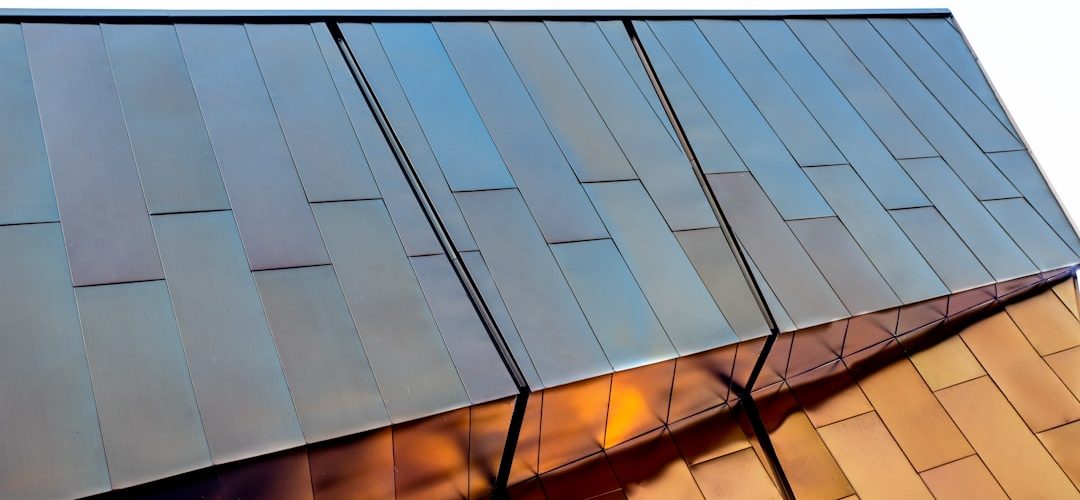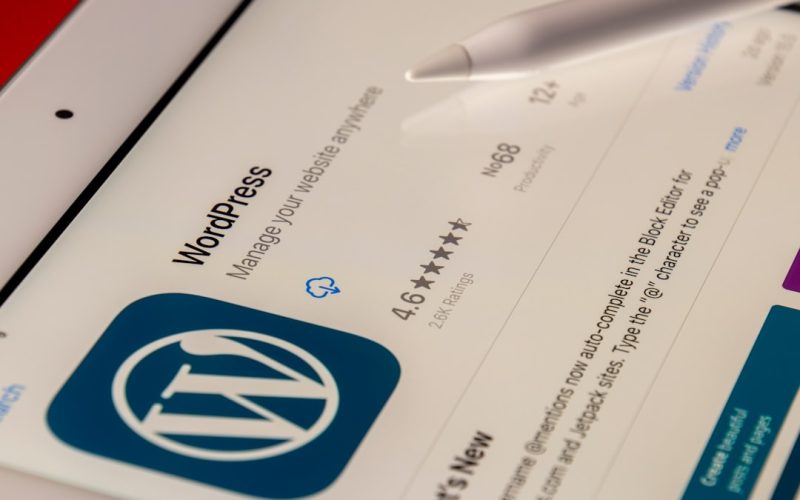In today’s digital age, having a professional website is not just an option; it is a necessity for solar panel installers. As I navigate through the competitive landscape of the solar energy market, I realize that my website serves as the first point of contact for many potential customers. A well-designed website not only showcases my services but also establishes credibility and trust.
When prospective clients search for solar installation services, they often judge the quality of a business based on its online presence. A polished, professional website can set me apart from competitors who may not prioritize their online image. Moreover, a professional website allows me to communicate my brand’s values and mission effectively.
It provides a platform to share my expertise in solar energy solutions, which is crucial in an industry that is constantly evolving. By presenting my services in a clear and engaging manner, I can attract more visitors and convert them into loyal customers. In essence, my website is a reflection of my business; it conveys professionalism and dedication, which are essential traits that potential clients look for when choosing a solar panel installer.
Table of Contents
ToggleKey Takeaways
- A professional website is crucial for solar panel installers to establish credibility and attract potential customers.
- Building a strong online presence is essential for the success of a solar panel installation business in today’s digital age.
- Customized websites can effectively showcase the expertise and services offered by solar panel installers, setting them apart from the competition.
- User-friendly features on a website can help attract and engage potential customers, leading to increased inquiries and bookings.
- Integrating SEO strategies is key to improving online visibility and ranking, making it easier for potential customers to find the business.
Creating a Strong Online Presence for Your Solar Panel Installation Business
Building a strong online presence is vital for my solar panel installation business. I understand that simply having a website is not enough; I need to actively engage with my audience across various digital platforms. This involves optimizing my website for search engines, maintaining active social media profiles, and participating in online forums related to renewable energy.
By doing so, I can create a cohesive brand image that resonates with potential customers and positions me as an authority in the solar industry. To enhance my online presence, I also focus on content marketing. By regularly publishing informative blog posts, videos, and infographics about solar energy trends, installation tips, and maintenance advice, I can attract visitors to my site and keep them engaged.
This not only helps in building trust but also encourages visitors to share my content, further expanding my reach. In this way, I can create a robust online ecosystem that drives traffic to my website and ultimately leads to increased inquiries and installations.
Showcasing Your Expertise and Services through a Customized Website

A customized website allows me to showcase my expertise and the range of services I offer in a way that resonates with my target audience. I take the time to highlight the unique aspects of my business, such as specialized installation techniques or partnerships with reputable solar manufacturers. By presenting detailed information about my services, including residential and commercial installations, maintenance packages, and financing options, I can cater to the diverse needs of potential clients.
Additionally, I ensure that my website reflects my personal touch and commitment to quality. This includes using high-quality images of completed projects, providing detailed descriptions of each service, and incorporating engaging visuals that capture the essence of solar energy. By creating a visually appealing and informative website, I can effectively communicate my expertise and instill confidence in potential customers who are considering solar panel installation.
Utilizing User-Friendly Features to Attract and Engage Potential Customers
| User-Friendly Feature | Potential Customers Engaged | Impact on Conversion Rate |
|---|---|---|
| Responsive Website Design | Increased engagement from mobile users | Higher conversion rate on mobile devices |
| Intuitive Navigation | Improved user experience and time on site | Reduced bounce rate and increased conversions |
| Clear Call-to-Action Buttons | Directs users to desired actions | Higher click-through and conversion rates |
| Personalized Recommendations | Increased engagement and time on site | Higher likelihood of purchase |
User experience plays a crucial role in attracting and retaining visitors on my website. I prioritize user-friendly features that make navigation seamless and enjoyable for potential customers. This includes intuitive menus, clear calls-to-action, and mobile responsiveness.
As more people access websites through their smartphones, ensuring that my site is optimized for mobile devices is essential for reaching a broader audience.
In addition to navigation, I incorporate interactive elements such as calculators for estimating solar savings or tools for assessing energy needs. These features not only engage visitors but also provide them with valuable insights into their potential investment in solar energy.
By making the user experience enjoyable and informative, I can keep visitors on my site longer, increasing the likelihood of conversion.
Integrating SEO Strategies to Improve Online Visibility and Ranking
To ensure that my website reaches its intended audience, I recognize the importance of integrating effective SEO strategies. By optimizing my site for relevant keywords related to solar panel installation, I can improve its visibility on search engines like Google. This involves conducting keyword research to identify terms that potential customers are searching for and incorporating them naturally into my website’s content.
Additionally, I focus on creating high-quality backlinks from reputable sources within the renewable energy sector. This not only boosts my site’s authority but also drives referral traffic from other websites. Regularly updating my content with fresh information about solar technology advancements or industry news also signals to search engines that my site is active and relevant.
By implementing these SEO strategies, I can enhance my online visibility and attract more organic traffic to my website.
Generating Leads and Converting Visitors into Customers through Your Website

Capturing Visitor Information
This includes offering free consultations or downloadable guides in exchange for contact details. By providing valuable resources, I can entice visitors to share their information while positioning myself as a knowledgeable expert in the field.
Converting Leads into Customers
Once I have captured leads, the next step is converting those visitors into paying customers. This involves nurturing relationships through targeted email marketing campaigns that provide additional information about solar energy benefits, financing options, and installation processes.
Building Trust and Encouraging Action
By maintaining consistent communication and addressing any concerns or questions potential customers may have, I can build trust and encourage them to move forward with their solar installation project.
Highlighting Customer Testimonials and Case Studies to Build Trust
One of the most effective ways to build trust with potential customers is by showcasing customer testimonials and case studies on my website. Positive feedback from satisfied clients serves as social proof that reinforces the quality of my services. I make it a point to collect testimonials after each installation project and display them prominently on my site.
In addition to testimonials, I also create detailed case studies that highlight specific projects I’ve completed. These case studies include information about the challenges faced during installation, the solutions implemented, and the positive outcomes achieved for the client. By sharing real-life examples of successful installations, I can demonstrate my expertise and reliability as a solar panel installer, making it easier for potential customers to choose me over competitors.
Providing Educational Resources and Information about Solar Energy on Your Website
I believe that educating potential customers about solar energy is essential for fostering informed decision-making. Therefore, I dedicate a section of my website to providing educational resources that cover various aspects of solar technology, benefits of solar energy, and installation processes.
This includes articles, infographics, videos, and FAQs that address common questions or misconceptions about solar power.
By offering valuable information on my website, I position myself as a trusted resource in the industry. This not only helps potential customers feel more confident in their decision to invest in solar energy but also encourages them to return to my site for future inquiries or updates on new technologies. Ultimately, providing educational resources enhances my credibility and strengthens my relationship with potential clients.
Incorporating Call-to-Action Elements to Encourage Customer Inquiries and Bookings
To drive engagement on my website, I strategically incorporate call-to-action (CTA) elements throughout the site. These CTAs prompt visitors to take specific actions such as requesting a quote, scheduling a consultation, or signing up for a newsletter. By placing these elements prominently on key pages, I can guide visitors toward making inquiries or bookings.
I also ensure that my CTAs are clear and compelling. For instance, instead of simply stating “Contact Us,” I might use phrases like “Get Your Free Solar Consultation Today!” This creates a sense of urgency and encourages visitors to take action immediately rather than delaying their decision. By effectively utilizing CTAs, I can increase conversion rates and turn interested visitors into actual customers.
Utilizing Analytics and Data to Track Website Performance and Improve Conversions
To continuously improve my website’s performance, I rely on analytics tools that provide valuable insights into visitor behavior and engagement metrics. By tracking data such as page views, bounce rates, and conversion rates, I can identify areas where improvements are needed. For instance, if I notice that visitors are leaving a particular page quickly, it may indicate that the content is not resonating with them or that navigation could be improved.
Using this data-driven approach allows me to make informed decisions about updates or changes needed on my site. Whether it’s optimizing content for better engagement or adjusting CTAs based on user behavior patterns, leveraging analytics helps me refine my strategies over time. Ultimately, this commitment to continuous improvement enhances user experience and increases the likelihood of converting visitors into customers.
Leveraging Social Media Integration to Expand Your Reach and Connect with Customers
Social media integration is another powerful tool that I utilize to expand my reach and connect with potential customers. By linking my social media profiles to my website, I create opportunities for visitors to engage with me on multiple platforms. This not only helps in building brand awareness but also fosters community engagement around solar energy topics.
I actively share content from my website on social media channels such as Facebook, Instagram, and LinkedIn. This includes project highlights, educational articles, customer testimonials, and industry news updates. By engaging with followers through comments and messages, I can establish meaningful connections with potential clients while showcasing my expertise in solar panel installation.
Ultimately, leveraging social media allows me to create a dynamic online presence that complements my website efforts and drives more traffic back to it. In conclusion, having a professional website is essential for solar panel installers like myself who want to thrive in today’s competitive market. By creating a strong online presence through effective strategies such as showcasing expertise, utilizing user-friendly features, integrating SEO practices, generating leads, highlighting testimonials, providing educational resources, incorporating CTAs, leveraging analytics data, and engaging through social media integration—I’m well-equipped to attract potential customers and convert them into loyal clients in the renewable energy sector.
If you are looking to improve the SEO of your Solar Panel Installers WordPress Website, you may want to consider taking an SEO training course. SimonSaysWebDesign offers SEO training courses that can help you optimize your website for search engines and improve your online visibility. In addition, you may also want to read their article on whether inbound linking can hurt your ranking, as understanding the impact of backlinks on your website’s SEO is crucial. For more information on website design, you can also check out their article on creating a Fast Food WordPress Website. SEO Training Courses
FAQs
What is a solar panel installer?
A solar panel installer is a professional who is trained to install solar panels on residential or commercial properties. They are responsible for ensuring that the solar panels are properly installed and connected to the electrical system.
What does a solar panel installer do?
A solar panel installer is responsible for assessing the property for the best location for solar panel installation, installing the solar panels, and connecting them to the electrical system. They may also be responsible for maintenance and repairs of the solar panels.
Why should I hire a professional solar panel installer?
Hiring a professional solar panel installer ensures that the solar panels are installed correctly and safely. They have the knowledge and experience to assess the property and install the panels in the most efficient manner.
What are the benefits of having a solar panel installer WordPress website?
Having a WordPress website for a solar panel installer allows them to showcase their services, previous projects, and customer testimonials. It also provides a platform for potential customers to contact them and learn more about their services.
What information should be included on a solar panel installer WordPress website?
A solar panel installer WordPress website should include information about the company, services offered, previous projects, customer testimonials, contact information, and a blog or resources section for educational content about solar panels.
How can a solar panel installer WordPress website help with marketing?
A WordPress website for a solar panel installer can help with marketing by improving online visibility, providing a platform for customer testimonials and case studies, and allowing for search engine optimization to attract potential customers.




